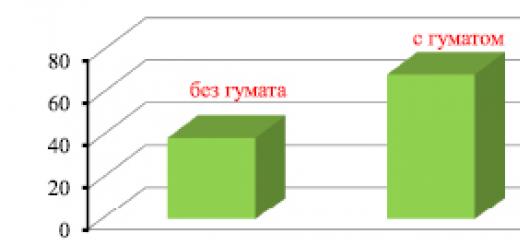...that is, “with a serious, even arrogant look,” as well as “give soup” or receive. In Russian slang, it is no coincidence that “shchi” denotes a face - a person’s calling card. After all, cabbage soup is actually the hallmark of Russian cuisine
The word "cabbage soup", which is mentioned in the 16th century in "Domostroy" as "shti", according to Vasmer's etymological dictionary, comes from "s'to" - "sustenance". Initially, it meant any hearty dish with herbs. Cabbage, brought to Rus' around the 9th century from Greece, became one of the main components of cabbage soup because it grew well and was stored in the harsh domestic climate. They made cabbage soup in Russian houses almost every day. In large families, a 6-7 liter pot of soup was enough to feed the whole family at once. It was not customary to reheat this dish, since heated cabbage loses its taste. And the expression “warmed up cabbage soup” meant outdated news.
Classic cabbage soup made from veal and cabbage (fresh or sour) was called rich in the old days and was prepared mainly in the fall and early winter. During Christmas and Lent, cabbage soup was cooked with fish, mushrooms or empty. At the end of spring and summer, green cabbage soup was made: first from honey and nettles, then from sorrel and cabbage seedlings. Maxim Syrnikov in his book “Real Russian Food” even mentions cabbage soup made from bracken, which Russian explorers of the Far East prepared on the banks of the Amur.
Interview
Sergey Lobachev
A native of Moscow, chef of the restaurant “Ts.D.L.” - about which foreigners love Russian cabbage soup.
 It would seem that everyone knows how to cook this traditional dish. But is there a special secret to cooking cabbage soup?
It would seem that everyone knows how to cook this traditional dish. But is there a special secret to cooking cabbage soup?
Eat. First of all, you must first bake the bone and fry the vegetables, then they will caramelize a little, and the taste of the broth will become brighter and richer. And to give the cabbage soup a smoky aroma, keep it on the fire or grill for a few minutes.
Is it possible to fix cabbage soup if you oversalted it?
You can simply dilute it with unsalted beef or chicken broth. You can dip raw potatoes into the soup for a few minutes and then remove them. But if your daily cabbage soup is over-acidified, this cannot be corrected.
From whom did you learn such subtleties?
From grandma. She is not a professional, but an elementary school teacher, but her cabbage soup turns out amazing. I often manage to reproduce other chefs’ recipes to suit my taste, but I cannot repeat my grandmother’s cabbage soup, although all the ingredients are clear. Probably, her forty years of experience are telling.
We eat cabbage soup often and with pleasure. Do foreigners order them in restaurants?
Europeans rarely eat any soups, but if you talk about the dish and our traditions, then, of course, they try it with interest. And Asians (Japanese and Chinese) try everything and really like cabbage soup.
It is unlikely that it will be possible to find out how cabbage soup was prepared before the 17th century, but since the invention of the Russian oven, the technology has not changed for several centuries. The roasting pot was placed in the oven early in the morning. The meat had to simmer for a long time to come off the bone. This cooking method allowed the housewife to do other things while cooking dinner for the whole family. When the meat was “right,” coarsely chopped cabbage, carrots, roots, and sometimes cereal or flour were placed in the pot. The flour patty added satiety. A sour dressing was always added to the soup; it added flavor to the dish, because until the end of the 19th century, salt was quite expensive. Regular cabbage brine, sour apple broth, and sour cream were used as such a dressing. It was acid that largely created that very same spirit that filled Russian homes for years and was ineradicably ingrained in the memory of foreigners. The sour dressing, as well as the vegetable mass, are the main components of cabbage soup. Everything else is variable.
The shanoy pot was cleaned every day and doused with boiling water, often pronouncing various incantations, for example: “The shanoy pot, be full, not empty, feed it, dear, every day, and I will wash away all the rabble!”
The 19th century introduced changes to the traditional cabbage soup recipe. Firstly, French chefs who worked in rich Russian houses began to prepare clear broth for cabbage soup, without adding flour. Secondly, with the advent of taverns, so-called frosty cabbage soup became popular in winter. Vegetables could be stewed at home in the oven, frozen and taken on the road, and when you got to the tavern, throw them into the hot broth - and the dish was ready. By the end of the century, new products began to appear in the recipe for the first time - tomatoes and potatoes. Tomatoes, or tomato puree, provided the necessary sourness. Potatoes replaced the flour mixture. At first it was put in whole just for the sake of starch, and before serving it was removed from the soup. It was believed that starch kills the sour taste of soup, but since the middle of the 20th century, potatoes began to be added for nutritional value, besides, salt has ceased to be an expensive product and acid is no longer so important in regulating the taste of a dish. And now cabbage soup is practically not cooked in Russian ovens due to the lack of such. They try to reproduce the simmering process on a fire, stove, or oven. But until now, real Russian cuisine is unthinkable without cabbage soup.

Recipe
Cabbage soup on the fire
Number of servings: 4
Cooking time: 2.5 hours
1 Bake the bone in an oven preheated to 180°C for half an hour. Pour in 1.5 liters of water and bring to a boil. Drain the first broth and fill the bone again with 1.5 liters of water. Bring to a boil, skim off the foam, add a tablespoon of salt. Peel one carrot, one onion and two celery stalks. Cut carrots and onions in half. Fry all the vegetables without oil until golden brown for a couple of minutes.
2 Add vegetables and beef pulp to the pan and cook along with the bone for two hours over low heat. Then remove the meat, bone and vegetables, and strain the broth.
3 Finely chop the cabbage, cut the potatoes into cubes. Peel another carrot and one onion, cut them into strips and fry in vegetable oil until golden brown. Bring the broth to a boil, add cabbage, potatoes, fried vegetables and meat, disassembled into fibers. Cook for 10 minutes.
4 Place the pan with cabbage soup on the grill, add birch bark and alder shavings to the fire, boil the soup for another 5 minutes. Add bay leaf, salt and pepper to taste. Serve with sour cream and herbs.
Photos: Grigory Polyakovsky
Due to my unemployed state, I decided to remember my calling,
more precisely about the specialty (since, I think, I haven’t found my calling yet) - linguistics!
What can we say, how many lexical analyzes were carried out at the institute,
how many patterns have been identified,
how many times have the etymologies of various lexical units been searched for...
can't count
but all this was not always interesting
or rather it was always uninteresting
and only sometimes it’s interesting
But if we were to parse words such as “cabbage soup,” for example,
with subsequent identification of denotations, designata and connotations)))
but no((
Well, modern linguistics should not suffer such damage!
I'll fill this gap!
Let's start with an amateurish approach - let's turn to Wiki:
Cabbage soup - 1st person; 2. fan, person.
(to enhance the emotional coloring, they often write and say “shchi” (for example, “on complex soup”))
+ Complex cabbage soup - serious look (note to be on complex cabbage soup)
Time passes and a reduction of the word is already revealed:
Shch - designation of a person to give him a special personality
(in most cases, negative connotation)
(to enhance the emotional coloring, they often write and say “shchshch” (for example, “split someone’s shchshch”))
What do the older generation say?
Let's listen to Radio Liberty, where Irina Levontina broadcasts,
senior researcher at the Vinogradov Russian Language Institute:
“The creative potential of the language has not dried up. New words and expressions continue to appear,
I found an absolutely amazing expression. Do you know what “complicated cabbage soup” means?
- Of course not.
- Do not know. I didn’t know either, and I only found out recently. This is, of course, slang.
- Modern?
- Modern, youthful, rather Moscow. In general, the word "cabbage soup" turns out to mean "face" in slang.
- Face?
- Yes, face. And “complicated cabbage soup” or “difficult cabbage soup” is a face that is dissatisfied, or arrogant, or something else like that. There's a wide range. I found a lot of uses on the Internet. A man, for example, talks about a trip to Peru, how he climbs a pyramid. It's cold, it's hot, there are steps, and so on. And then he explains: “That’s why I have difficult cabbage soup in all my photographs.”
The etymology of this expression is vague to me. I can only assume that the linguistic memory of sour cabbage soup in its former meaning came into play here. This was not the name of the soup at all, but of a drink like kvass. Really sour, it could make your face twist.”
While Irochka Levontina strains her cabbage soup on the topic of etymology,
Let's see what the RUSSIAN ACADEMY OF SCIENCES writes about this.
The dictionary of Russian folk dialects contains the word “soch” in the meaning of “face”,
plural “schi”, which, due to phonetic changes, became “cabbage soup”.
Other common versions include simply cheeks,
and a completely indecent option - f*cking.
It seems to me that using it is much more interesting!)))
The website of Moscow football hooligans, for example)) offers the cutest dictionary of fan expressions:
- cabbage soup - face, head, mentality
- slap the cabbage soup - beat, mutilate
- on difficult cabbage soup - with a dissatisfied, puzzled, tense face
- cabbage soup - inexplicable on paper, can be used in any context to give speech a hint of discontent tsp.
- scratch cabbage soup - think
- blank cabbage soup - “not a model appearance”
So Moscow or St. Petersburg?
Some people think that
“cabbage soup - hooligan slang of St. Petersburg
approx. “I’ll break you now with cabbage soup.”
The more logical path is MSC → St. Petersburg.
I cleaned up the following combinations from one character in LiveJournal:
- on cabbage soup - hit in the face
- cabbage soup for discharge - badly broken face
- take out the cabbage soup - get in the face
(especially successful with the extract, in my opinion)
It seems that cabbage soup has seeped not only into Uzus, but also into the language norm
and Gazeta.Ru is absolutely not shy about this use:
“My cabbage soup did not fall,” the young man said gravely to the photojournalist. “Erase the picture” (“fire” - put on public display; “shchi” - face).
In Chelyabinsk there is a group of musicians called "Shchi is simpler."
They play POP-PUNK, SKATE-PUNK. Are you interested in looking at their faces?
I was touched by someone’s direct exclamation:
shchi - it turns out it's bullshit!
Multitran does not lag behind and offers various translations of the words))
chevy chase cabbage soup (on difficult cabbage soup)
worried face
strike at the face shchi (breaking shchi)
paste cabbage soup (ship in cabbage soup)
deliver at the face shchi (write in shchi)
with a pale face oob (on pale cheeks)
There is also a lot of “alcoholic” cabbage soup:
hangover cabbage soup
morning cabbage soup
forever blue cabbage soup
drink in one cabbage soup
ferment - pour in cabbage soup
What GOOGLE returns upon request:
suddenly I wanted to grab some cabbage soup
my dangerous fucking shchi
We don’t burn cabbage soup
cabbage soup - animals section
guess the soup
you can get some money for cabbage soup
aposthamble - I'm afraid I'll have to prove I'm right in other ways
give in cabbage soup
I’ll have cabbage soup at my mother’s and there will be cabbage soup that’s much thicker, can you smell it?)))
(allusions to Caste)
It is worth noting the wealth of Russian proverbs and sayings:
- Where is the cabbage soup, look for us
- You are welcome to slurp cabbage soup past the gate!
- What about your cabbage soup? At least rinse the f*ck!
But this is straight from Domostroi:
Quite harsh treatment of women is encouraged as a guarantee of family happiness:
The more you beat your wife, the better the cabbage soup tastes.
Finally, we can only add:
“Everything in a person should be beautiful: cabbage soup, clothes, soul, and thoughts.”










